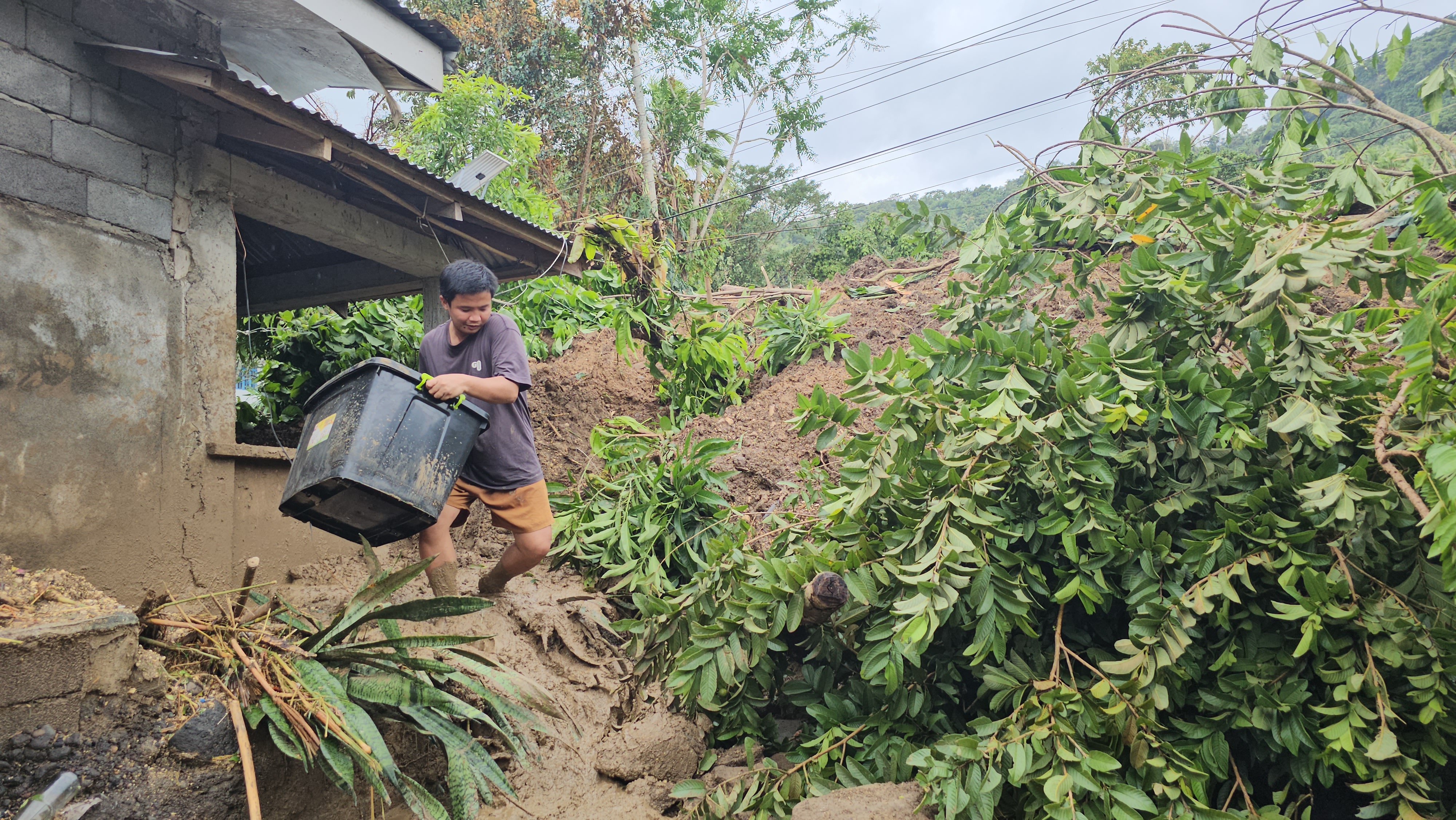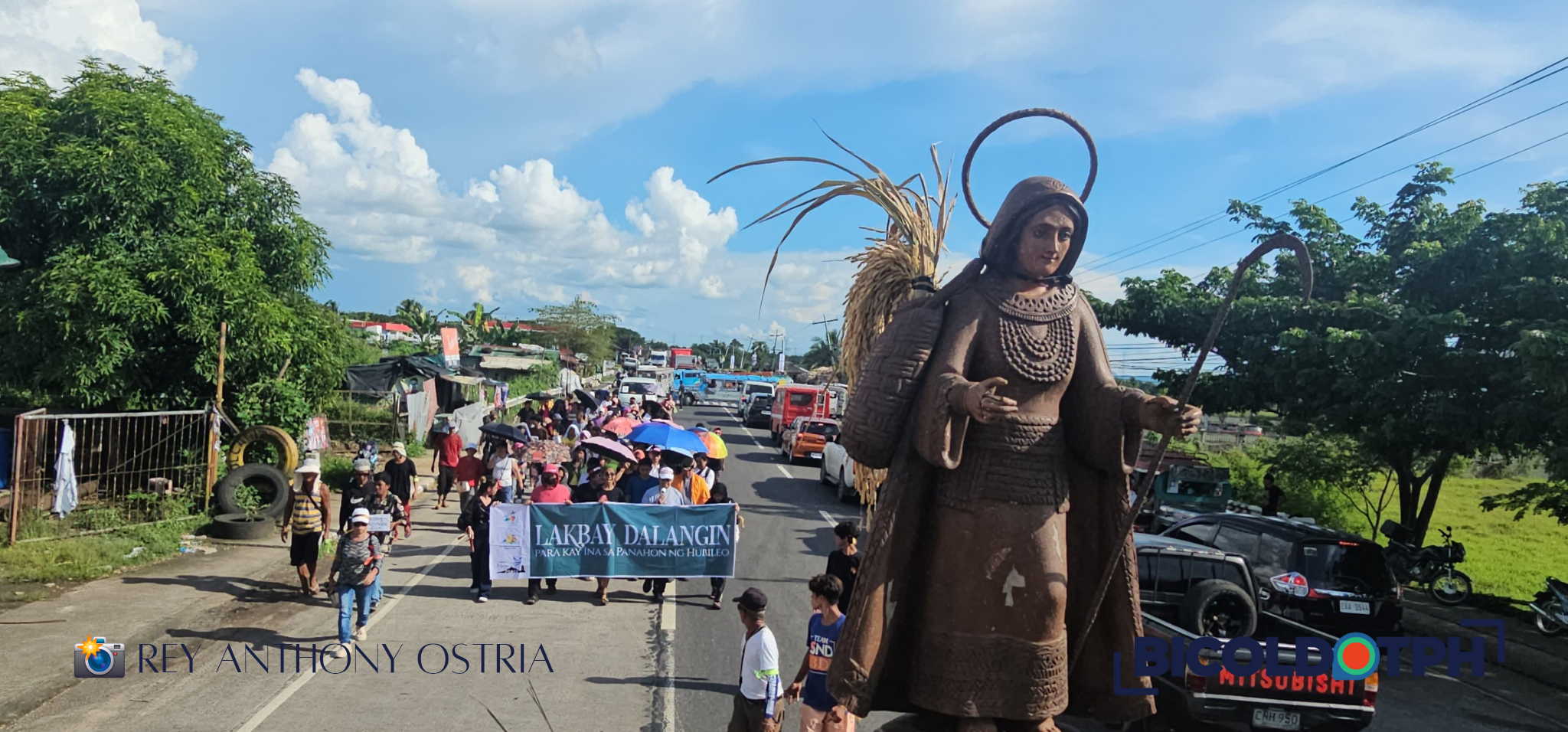In just a few days, it will mark exactly 86 years since the pre-World War II newspaper “An Parabareta” sparked a spirited debate about the supposed misfortunes of my hometown, Guinobatan.
I was reminded this first when I saw someone on Reddit ask everyone in r/Bicol what they think are the ‘best and worst’ cities and towns in the region. The responses were all quite interesting, so if you wanna read it later, here’s the link to the discussion.
On May 31, 1939, a certain Ermitaño sa Pangpang (pen names of journalists and readers writing to the newspaper were common in “An Parabareta”) wrote a piece titled “Guinobatan, the Unlucky Town.” The response the article generated were all quite colorful and would give anyone interested a glimpse on the life in Bicol.
Ermitaño sa Pangpang started by mentioning of a certain Cipriano Marbella, during whose wake an old man commented that Guinobatan is an unlucky town because its church faces westward. The initially skeptical Ermitaño said that as he grew older, he came to understand that there was truth in what the old man said—that the town’s “unhappiness” is really brought by how its house of worship is positioned.
Ermitaño gave some evidence of the town’s misfortune before asking the Guinobateño readers what they thought:
- He said that the town’s rich families—Otibar, Jaucian, Oyales, and Orense—have lost their fortunes.
- He also mentioned 12 Chinese in the town, who were previously “remarkably rich,” but who have all lost their fortunes.
- He compared Guinobatan to the neighboring town of Ligao (won’t become a city until 2001), where the fortunes “were not only kept in tact, but have been instrumental in bringing up new ones.”
- He also said that Guinobateños who have succeeded have gained their prosperity outside the town: aside from the bailarinas, Atty. Duran, Atty. Marbella, Mr. Opiana, Mr. Buenaventura, and Prof. Ocfemia, all of whom do not reside in Guinobatan anymore.
“Formerly, Atty. Ciriaco Garcia was provincial fiscal of Surigao. He returned to Guinobatan and became jobless. When Atty. Mariano Marbella was in Guinobatan, he was politically dead. He went away from Guinobatan and now he is a prosperous citizen and a leading attorney in Misamis. When the late Froilan Pavericio was in Guinobatan, he could not pass the bar examination for four times. He went to Tabaco (also not a city then) and there not only did he marry a rich girl but also became a representative,” Ermitaño wrote.
He even said that he can still give other proofs but “for the sake of brevity, we have only mentioned the foregoing ones.”
It did not take long before other readers and writers commented.
“An Parabareta” was a weekly newspaper based in Legazpi (then spelled Legaspi, by the way) and it was common for readers to chime in when there are controversial takes.
In the June 7, 1939 issue of the newspaper, a Guinobateño who was then the municipal treasurer in Lagonoy in Camarines Sur, Agapito M. Oquinto (you will notice that most Guinobateños’ surnames start with O and P), commented that he “carefully read” the article from the previous week.
“I found them to be true and correct,” he wrote. “But being also a Guinobateño, it pains me to read such article because it discourages those who are contemplating to return to their hometown some years to come.”
He then suggested that the Ermitaño stop discouraging Guinobateños who are planning to return because they might become “lucky and rich like those from Ligao.”
The following week, an even more interesting reply to Ermitaño was published by “An Parabareta,” this time from a certain Encantong Palong, who did not hold back in mocking Ermitaño’s superstition regarding how the church was facing west.
This church, by the way, was not explicitly mentioned even by Ermitaño, but I am assuming this is the Our Lady of Assumption Parish, which is facing northwest. I am not familiar about this religious belief or whether or not it is still held today, but apparently, there was a belief then that churches must face what is called the “liturgical east,” because it must face the rising sun, symbolizing Jesus Christ’s coming.
“If it is true that the more civilized a man is the less superstitious he is, and conversely, the more superstitious a man is the less civilized he is, the conclusion is inevitable that Mr. Ermitaño sa Pangpang is an uncivilized man because he is much given to superstitious beliefs,” Encantong Palong wrote.
He said that in 1839, Ermitaño’s reasoning would have been “an up-to-date reasoning, but today, it is out of fashion.”
Encantong Palong then listed Guinobateños who were financially well-off, even claiming that some were more prosperous than those in Ligao.
But what I really liked about this response by Encantong Palong was that he mentioned what others may have also been thinking the previous two weeks: “Judging from the way he reasons out, it seems that Mr. Ermitaño sa Pangpang us too money-minded. To him, nothing matters except money.”
He said that a person’s worth should not be measured by how much money they have in their pockets, but by the total sum of their contributions to the community.
He then ended with something to prove that Guinobateños may be poor, but they are honest:
“Let me say that in Guinobatan, you can tie up your carabao in the fence, and there you will find it, dead or alive, but still there, no matter how long you may have left it. In other towns, you tie up your carabao in the fence, and on the following day, you will find the carabao without the carabao.”
The sound you hear next is Encantong Palong dropping his mic.
This article by Encantong Palong was accompanied on the same page by an open letter from a certain Seneca Oliver, who referred to himself as “The Dike Speculator” in the byline.
Oliver wrote that Ermitaño should have instead encouraged Guinobateños to restore the town’s lost prestige.
“In that, you are the Filipino citizen who deserves to be praised. In that, too, you have the tendency to become a hero… And besides, what can you expect from a town which has a location like Guinobatan? It is neither a port like Constantinople nor a trading center like (Baghdad).”
Goodness me, I love it when people drop geographical references like that when writing. But Oliver wasn’t finished:
“It has no Taj Mahal nor a hanging garden. What it has is a treacherous Fuji which, in its wake, drives away panicky people. What it has is an uncontrollable Mississippi which flows its banks and overfloods the town more than once too often.”
People discuss the same problems in Albay even as far back as the 1930s, do they? That wasn’t just the case. Reading this “An Parabareta” showed me a lot of the same problems that even Legazpi City has been facing ever since. There is even an opinion piece in one of the paper’s August 1939 issues about the heavy traffic in Legaspi and Daraga. But those are stories for another day.
If you think the discussion whether or not Guinobatan was a lucky town ended there, meet Asuang na Biray. (Just one letter swap there and that’s a crude pen name.)
On June 28, 1939, Asuang na Biray attempted to be in the middle with the article titled, “Guinobatan, Neither a Lucky Nor an Unlucky Town.”
Let me just rub my palms. This is bound to be a good read, right?
Oh, no! Wait! Asuang na Biray did not attempt to be in the middle! He wanted to be a third side to the story. He criticized both the previous authors for “missing the point” and being outspoken about it.
“It is just any other town lying in the foot of Mayon,” Asuang na Biray wrote.
He even criticized Encantong Palong’s statement about there having no thieves in Guinobatan.
“After setting up the proposition that in Guinobatan, there are no thieves, he jumps to conclusion that there are thieves in other towns. This is an outrage against the people of other towns and travesty upon the fundamental rules of logic. The proper argument he should have made is this: In Guinobatan, there are no thieves; ergo, neither are there thieves in neighboring towns. Serious matters like theft are not presumed. Nothing short than direct, convincing and positive proofs, no court of justice will entertain an accusation of that nature.”
A debate class from Asuang na Biray.
He then continued by saying that unless there was proof otherwise, the people of Ligao also have the right to be called honest.
“Finally, however futile the discussion between Mrssrs. (this was how they spelled Mr. then) Ertitaño sa Pangpang and Encantong Palong may seem, it is not entirely devoid of meaning. There is a redeeming feature about it. For altho it is generally conceded that ‘the age of chivalry is gone,’ yet somewhere in the midst, in a not far distant nook of the province of Albay, there are still men who are poor but honest. And these men are the Guinobateños. Mabuhay an taga Guinobatan!”
That debate ended there.
There have been other colorful debates among the newspaper’s readers and writers. “An Parabareta” even published a town mayor’s response to their criticism of his policies. Local newspapers were a huge part of the Bikolnon life then, so of course the local politician had to send the newspaper a response.
There’s also this columnist Miss Rosita who was like the Ambeth Ocampo of “An Parabareta” and who in maaany issues of the newspaper wrote lengthily about why she believes Jose Rizal recanted his masonic beliefs. There were poems with interesting bylines such as “Co Monista.” There were articles that list down cures for the “world’s ills” and listing communism and anarchy as some of the cures. And then there’s this editorial in which “An Parabareta,” based in Legaspi but covered the entire region, wrote that they agree with a newspaper in Naga about a certain issue involving the women in the town (Naga also wasn’t yet a city then). If I find time, I’d like to tell you all about these. Basically, what I’m saying is that there were so many things connecting us to the past.
Many things haven’t changed. They’re still the same issue. Throughout it all, local newspapers have been a mirror, a battleground, and at times, a witness that spoke when no one else dared to.
NOTE: Thanks for dropping by and reading this. I have abandoned all of my social media accounts except Bluesky and Reddit. If you want to be updated on the posts here, please subscribe to email alerts here. Thank you and have a nice day!





